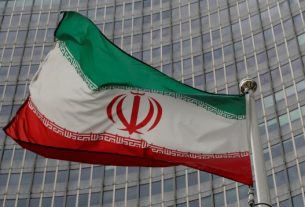Austria’s political landscape has been upended by the results of Sunday’s national elections, creating fresh uncertainties about the country’s next government. The far-right Freedom Party (FPÖ) stormed to a decisive victory, with its leader Herbert Kickl delivering the party’s best-ever result. At the same time, the conservative Austrian People’s Party (ÖVP) suffered a major blow, losing roughly 11 percentage points. The Social Democrats (SPÖ), meanwhile, slipped to third place, setting the stage for intense political jockeying.
Before formal coalition-building can begin, President Alexander Van der Bellen is holding one-on-one consultations with the heads of all major parties. The president began the series of meetings on Friday with FPÖ leader Kickl. Scheduled next are ÖVP’s Karl Nehammer and SPÖ’s Andreas Babler, who will meet the president on Monday. Rounding off the discussions will be the Greens’ Werner Kogler and NEOS leader Beate Meinl-Reisinger on Tuesday.
Van der Bellen has assured the public that he will only make a statement once these preliminary meetings are concluded, likely no earlier than Tuesday. Whether or not he will issue a formal mandate to any party leader remains uncertain.
However, it appears some parties are not waiting for the president’s green light. A significant meeting between Nehammer and Babler is reportedly set for Tuesday, just one day after their consultations with Van der Bellen.
While this may be described as an “atmospheric exchange” by insiders, early indications suggest that the talks will cover far more than pleasantries. Both parties are reportedly eager to discuss critical issues that were top-of-mind for voters during the election: healthcare reform, national security, migration policy, inflation relief, and affordable housing.
A Series of Quiet Talks Leading Up to This Moment
This potential meeting between Nehammer and Babler builds on a string of prior discussions between top officials from both the ÖVP and SPÖ. Earlier this year, key figures like National Council Vice President Doris Bures (SPÖ) and National Council President Wolfgang Sobotka (ÖVP) met at Parliament to explore possible common ground. Additionally, Nehammer and Vienna’s SPÖ Mayor Michael Ludwig had informal talks in the spring, signaling that channels of communication between the two parties have been open for some time.
Sources from within both parties suggest that personnel decisions are already being quietly debated, though not at the highest levels. A sticking point for the ÖVP appears to be the inclusion of certain high-profile SPÖ figures, including Kai Jan Krainer and Julia Herr, a close confidante of Babler and deputy head of the SPÖ’s parliamentary group.
“Krainer has caused too much damage during the parliamentary inquiry process, and Herr’s positions are far too left-wing for us,” an anonymous ÖVP insider told the media.
SPÖ Hopes to Buy Time, Eyes Regional Elections
While talks are inching forward, the SPÖ is keen to play the long game, possibly delaying any major decisions until after the upcoming state elections in Vorarlberg and Styria. The party hopes a strong showing in these regional elections could strengthen its hand in national negotiations. SPÖ insiders have speculated that the political landscape could shift further, and they may not even be negotiating with Nehammer down the line, should ÖVP leadership change.
The Road Ahead: Navigating a New Political Reality
The coming weeks are likely to be pivotal for Austria’s political future. Behind-the-scenes maneuvering has already begun, with quiet negotiations shaping the contours of potential alliances. As the dust settles from Sunday’s election, the pressure is mounting for party leaders to forge a path forward in this new and unpredictable political reality.
Should the ÖVP and SPÖ find common ground in their early discussions, it could signal the formation of a new centrist alliance that would dramatically reshape the country’s leadership. However, if negotiations falter, Austria may face further political fragmentation and protracted coalition talks, leaving the door open for the FPÖ to assert its dominance in the months ahead.
With so much at stake, Austria’s next government is likely to emerge from a complex and high-stakes negotiation process that could redefine the nation’s political landscape for years to come.





